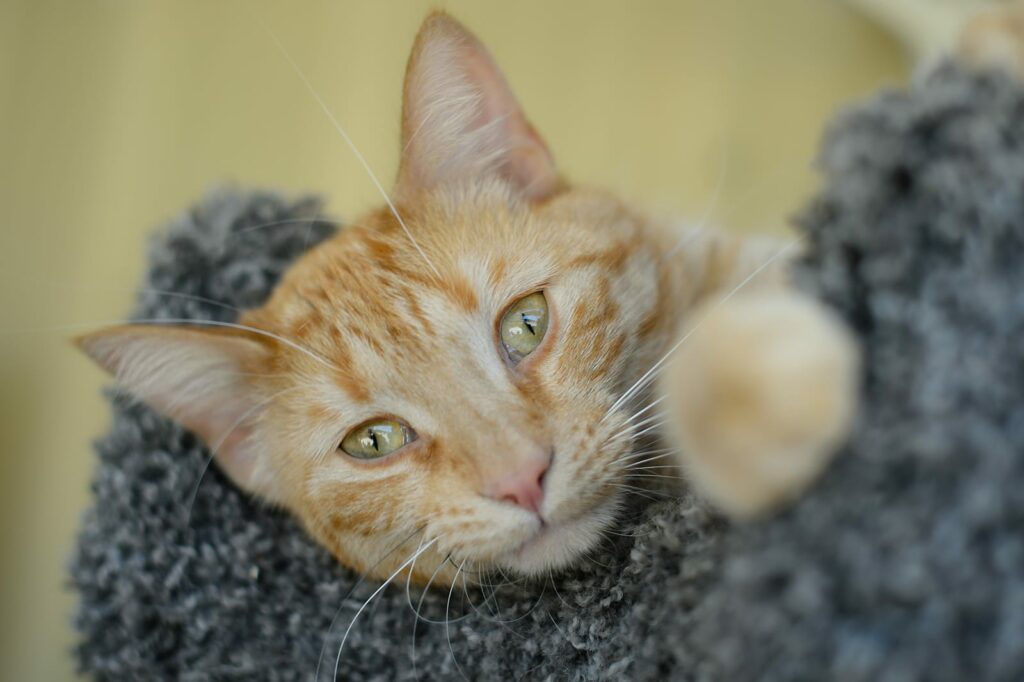Table of Contents
Cats are known for their ability to hide signs of illness, which makes it essential for cat owners to be vigilant and aware of subtle changes in their pet’s behavior and health. Recognizing the signs of illness in cats can ensure timely and effective care, improving your cat’s chances of a swift recovery. This guide highlights 10 critical signs to watch for and provides guidance on what to do if you notice these symptoms in your cat.

Changes in Appetite
A sudden increase or decrease in your cat’s appetite can be a sign of illness in cats. Conditions such as dental issues, gastrointestinal problems, or more severe illnesses like kidney disease or diabetes can affect your cat’s eating habits. If you notice a significant change in your cat’s appetite, consult your veterinarian. For more information, visit our Cat Appetite Changes guide.
Weight Loss or Gain
Unexplained weight loss or gain can indicate various health issues in cats, including thyroid problems, diabetes, or cancer. Regularly monitor your cat’s weight and consult your veterinarian if you notice any significant changes. For tips on maintaining a healthy weight, see our Maintaining Healthy Weight in Cats guide.
Lethargy
Lethargy or a decrease in activity levels can be a sign of illness in cats. While cats naturally sleep a lot, a noticeable lack of energy or enthusiasm for activities they usually enjoy can indicate an underlying health issue. If your cat is unusually lethargic, seek veterinary advice.
Vomiting and Diarrhea
Occasional vomiting or diarrhea can occur in cats, but frequent or persistent episodes can be signs of illness in cats. Causes can range from dietary indiscretion to infections or chronic conditions like inflammatory bowel disease. If vomiting or diarrhea persists for more than 24 hours, contact your veterinarian. For more details, visit our Cat Vomiting and Diarrhea guide.
Changes in Drinking Habits
Increased or decreased water intake can signal health problems in cats. Increased thirst may indicate diabetes or kidney disease, while decreased drinking can lead to dehydration. Monitor your cat’s water intake and consult your veterinarian if you notice significant changes.
Respiratory Issues
Signs of respiratory issues include coughing, wheezing, sneezing, and difficulty breathing. These symptoms can be caused by infections, allergies, or more severe conditions like asthma or heart disease. If your cat exhibits any respiratory distress, seek veterinary care immediately.
Changes in Urination
Changes in urination habits, such as frequent urination, straining to urinate, or blood in the urine, can indicate urinary tract infections, bladder stones, or kidney disease. Monitor your cat’s litter box habits and consult your veterinarian if you notice any abnormalities. For more information, see our Cat Urination Changes guide.
Poor Coat Condition
A healthy cat typically has a shiny, well-groomed coat. Changes such as excessive shedding, bald patches, or a dull, greasy coat can indicate skin conditions, allergies, or internal health issues. Regular grooming and veterinary checkups can help maintain your cat’s coat health.
Behavioral Changes
Behavioral changes such as increased aggression, hiding, or excessive vocalization can be signs of illness in cats, indicating pain or discomfort. Cats may also become less social or show changes in their normal routines. Any significant behavioral changes warrant a veterinary consultation.
Bad Breath
Bad breath, or halitosis, can indicate dental disease or other health issues such as gastrointestinal problems. Regular dental care and veterinary checkups are essential to maintain your cat’s oral health. For tips on dental care, visit our Cat Dental Care guide.
Conclusion: Signs of Illness in Cats
Recognizing the signs of illness in cats is crucial for providing timely and effective care. By being attentive to changes in your cat’s behavior and health, you can ensure they receive the necessary medical attention to maintain their well-being. Regular veterinary checkups, a balanced diet, and proper grooming can also help prevent many common health issues. For more resources on cat health and wellness, visit our Cat Health and Wellness section.
Frequently Asked Questions about Signs of Illness in Cats
What should I do if my cat is showing signs of illness?
If your cat is showing signs of illness, it is important to consult with a veterinarian as soon as possible. Early detection and treatment can prevent minor issues from becoming severe. For more information, visit PetMD.
How often should I take my cat to the vet for checkups?
It is recommended to take your cat for a veterinary checkup at least once a year. Senior cats or those with chronic conditions may require more frequent visits. For more advice, visit ASPCA.
Can stress cause illness in cats?
Yes, stress can contribute to various health issues in cats, including urinary tract problems, gastrointestinal issues, and behavioral changes. Reducing stress and providing a stable environment can help maintain your cat’s health. For more tips, visit The Spruce Pets.
What are common causes of weight loss in cats?
Common causes of weight loss in cats include hyperthyroidism, diabetes, kidney disease, and gastrointestinal disorders. If your cat is losing weight unexpectedly, consult your veterinarian for a thorough examination. For more information, visit AKC.
How can I maintain my cat’s dental health?
Maintaining your cat’s dental health involves regular brushing, providing dental treats, and scheduling professional cleanings with your veterinarian. For more tips, visit The Spruce Pets.










